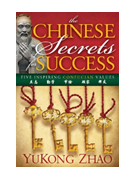As America is celebrating her 238th birthday today, our nation is faced with serious challenges both internationally and domestically. Just a few months ago, Russia annexed Crimea from Ukraine. Today, Iraq is falling apart and exposing America to much bigger terrorist risks than before the Iraq War began.
Domestically, our economic recovery is slow. We also have serious issues with education, the national debt, personal finance, obesity and crime. Though America is still the strongest nation in the world, we are not advancing as fast as many other nations.
Where is our American exceptionalism? What national traits once made America the greatest in the world? A few years ago, I watched a History Channel documentary called “America: The History of Us.” It depicted many moving accounts drawn from American history: How George Washington led the Continental Army, overcoming almost insurmountable difficulties — lack of military supplies, contagious diseases and a brutal winter — to prevail against the British; how pioneers conquered rugged mountains and harsh weather to finally settle the West.
What these stories demonstrate is the courage and endurance of our ancestors, who were up to whatever challenges life offered.
American exceptionalism was also demonstrated in our Founding Fathers’ willingness to learn the best practices from the world in order to build the best country in the world. We borrowed the idea of separation of powers in the executive, judicial and legislative branches from Baron de Montesquieu, a Frenchman. We championed the free-market system from Adam Smith, a Brit. We also learned from a German to put research centers in universities, which helped incubate numerous American innovations.
That was an era of American openness and pragmatism. We did not allow ideology and political correctness to disguise the truth. As William James famously put it: “Ideas become true just so far as they help us to get into satisfactory relations with other parts of our experience.”
In the past few decades, unfortunately, some people have misinterpreted what American exceptionalism means — that everything we do is the best. We fruitlessly exported our democracy to the Middle East without sufficiently considering local complexities. Though South Korea and Taiwan had a proven model toward democracy, we discounted them because they started with a benign dictatorship instead of free elections, as our ideology prescribed.
When our children indulge in video gaming, instead of discussing how it negatively impacts their study, our researchers justified it: Video gaming will enhance children’s multitasking ability. We are unwilling to challenge them to study hard, and to have the right disciplines and courage to succeed in whatever challenges the world has in store for them.
Worse, this symptom has spread to our media. Domestically, we cover too much entertainment, and not enough about the challenges we face. Our international reporting always conveys a “big brother” message: how great America is and how we help other nations. We rarely report: How Germany builds its unparalleled engineering capacity and keeps its economy strong, even during the financial crises. How South Korea developed the best-educated work force, which rapidly advances the country’s industries and corporations. What China has done right in rapidly growing its economy.
We do have Tom Friedman and Fareed Zakaria, who frequently tell Americans that we can learn from others. However, we have too few of them. If you travel internationally, it is easy to find TV channels in Europe that convey more serious content and broader perspectives.
America is still the greatest nation in the world. However, self-centered, myopic news reporting only creates arrogance in our politicians and complacency in our citizens. Americans have many great characteristics and should not be treated as vulnerable “indoor flowers.” If we let our citizens know the true picture of the changing world, and great things other nations are doing, they will be motivated to compete, to better prepare their children to meet challenges.
In my view, openness, pragmatism and the courage to meet challenges are the true ingredients of American exceptionalism because they will enable America to continuously improve herself. If we rejuvenate these qualities, I am confident that America will, as President Obama put it recently, lead the world for another century.
This Oped was first published on July 4th, 2014 by Orlando Sentinel with the title “Learn from others to revive American exceptionalism”



